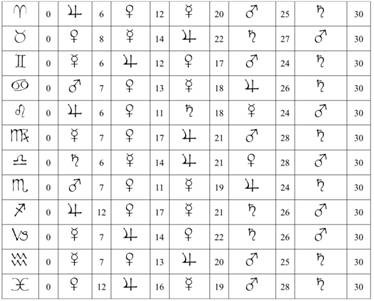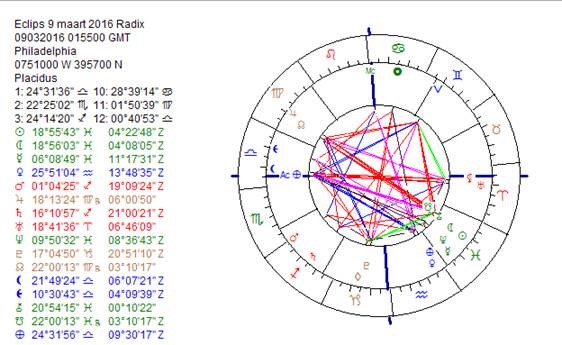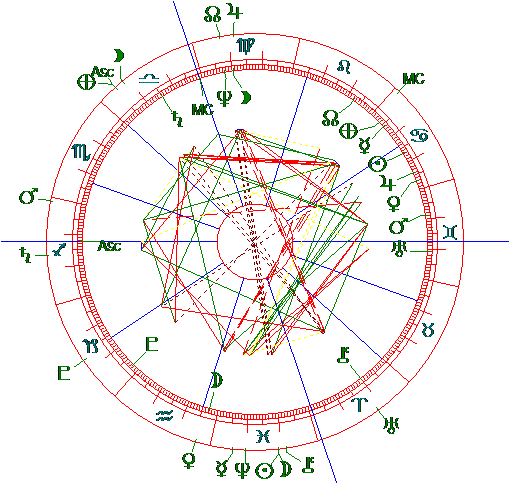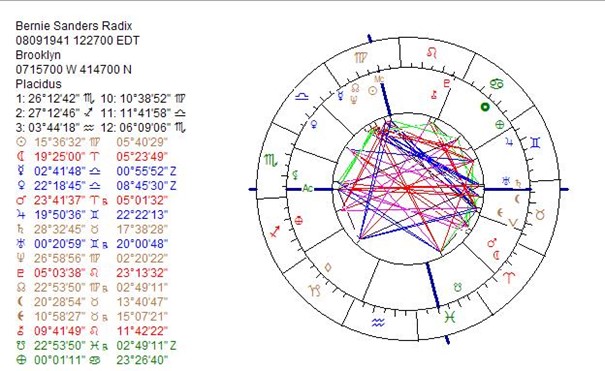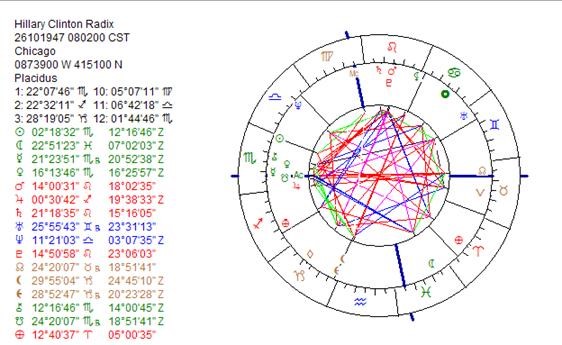The Total Solar Eclipse
The Total Solar Eclipse of 9 March 2016 and the U.S. Presidential Race: An Astrological Analysis Including New Spiritual Points
Introduction
Two items which have dominated social media recently are the Total Solar Eclipse of March 9th and the U.S. Presidential race. As an American-born astrologer it therefore behooves me to investigate the implications the former has for the latter. The paucity of serious analysis of the solar eclipse is, moreover, a thorn in the eye for astrologers whose work is not aimed at increasing readership or pacifying fears with superficial descriptions of ‘dramatic crises’ and ‘growth and new beginnings’. Although these descriptions do apply to eclipses to a certain degree, they are hardly sufficient for an examination of the multiple facets of the times we live in, nor do they do justice to the method of astrology conceivably as old as the science itself. Therefore, at the risk of presenting information which may, for some, be old news, in this article I will summarize the most useful steps in delineating an eclipse horoscope, including an explanation of the influence of the spiritual points. After that I will apply these steps to an analysis of the eclipse of 9 March 2016 and its synastry with the chart of the U.S.A. Then I will take a brief look at how the eclipse fell in the horoscopes of the four who were the frontrunners in the U.S. Presidential race at the time, with a brief look at developments culminating on November 8. As the Professional Code of Astrologers to which I adhere prohibits making predictions, not to mention my awareness of the proof which has been afforded by quantum science on the role thought plays in creating reality, this analysis will restrict itself to providing insight into the cosmic processes which underlies these mundane events.
Background of Eclipse Horoscopes
Stone tablets housed in the British Museum show that eclipses have been recorded as early as 747 B.C. Owing to the amount of data available, the cyclic nature of eclipses was easily identified as well as making the establishment of synodic month and tropical year possible. The records revealed that eclipses occurred at identical points every 6,585 1/3 days. Because this was a series of repetition, the cycle was dubbed ‘Saros cycle’, ‘saros’ meaning ‘repetition’ in the language of ancient Babylonia. A complete Saros series of 70 or 71 Solar eclipses lasts approximately1,260 years. Since the time of Ptolemy, astrologers have been advised to include the characteristics of the sign in which the first eclipse in a Saros series occurs when delineating later eclipses. CITATION Jan79 \l 1043 (Jansky, 1979)
Illustration 1:Constellation Dracos above; layout Angkor Wat temple complex beneath
Illustration 1:Constellation Dracos above; layout Angkor Wat temple complex beneath
For an eclipse to occur, the conjunction of the Sun and Moon or the opposition of the Sun and Moon must take place within 6 ° of the Lunar Nodal Axis. This emphasizes the necessity of understanding the lunar nodes, or the Caput Draconis (Dragon’s Head) and Cauda Draconis (Dragon’s Tail). A key to understanding eclipses is, thus, understanding the nodes. The Dragon also occupies an important position in Asian mythology, and the constellation Draco was reproduced in the layout of Angkor Wat and its surrounding temples in Cambodia (see illustration 1). According to Vedic mythology, the Dragon was originally a demon who drank from the Pool of ImmortalityCITATION Wil16 \l 1043 (Simmers, 2015). He was decapitated by Vishnu, who then swung the beast by its tail in order to churn the sea of Immortality. According to the Rig Veda the dragon was a beast which blocked the flow of the rivers and was finally defeated by Indra, the supreme Deva. These themes are significant when examining the points of the Nodal Cross in the eclipse horoscope.
The classical astrology of Ptolemy and the Greeks established principles by which eclipse horoscopes could be delineated. This system only includes the planets Mercury to Saturn and the respective rulers of the 12 astrological signs. But it also included the so-called ‘term’ or ‘bound’ ruler, an Egyptian system of sign division reproduced in the table below. The term ruler was based on the degree of the eclipse and was considered the person or influence that accompanied and assisted the native in the confrontation represented by the eclipse.
Chart 1: Egyptian Table of Term Rulers
The delineations of eclipse horoscopes in Classical, Hellenistic, and Vedic astrological systems portray black-and-white description of concrete events, which tend to give them a rather fatalistic tone. These horoscopes are commonly used in the predictive astrology which has recently enjoyed a resurgence of interest both in the U.S. and Europe.
However, three outer planets have been discovered since the time of Ptolemy. Modern astrologers, even those practicing traditional forms, usually include Uranus, Neptune and Pluto in their horoscopes, though they do not use the planets as Rulers of signs (a noteworthy inconsistency, in my opinion). And despite the fact that the Black Moon Lilith, as it is known, unfortunately, among English speaking astrologers, is regularly included in contemporary horoscopes universally available on the internet, there is, to my knowledge, only one astrologer who has investigated the presence of this point in the eclipse horoscopes. Since the turn of the century, the Dutch astrologer George Bode has regularly published articles on eclipses including the spiritual points including the Black Moon, as well as the importance of analyzing eclipse horoscopes with reference to the Saros cycle to which they belong (see bibliography). After having studied with Bode and incorporated his astrological method into my own practice, the use of these points in this analysis of the March 9th eclipse with regard to the U.S. chart and presidential race has provided me with certain insights I will share in the following paragraphs.
Principles of Delineation
Before proceeding to the analysis of the eclipse horoscope, I will present a short summary of the principles of delineation outlined in the previous discussion of the background of eclipse astrology. Given the overwhelming amount of data a horoscope can provide, I prefer to limit the analysis to the following points:
- House Position of Eclipse: this is the area which the native will experience the effects of the eclipse most strongly
- Planets in conjunction, opposition, or square of Eclipse: though traditional astrologers restrict themselves to aspects at 0° (conjunctions) or 180° (oppositions) to the eclipse degree (6° maximum orbs), I believe that tight aspects of 90° or ‘squares’ (3° maximum orbs) cannot be overlooked.
- Saros cycle: the eclipse is either conjunct the North or South node, and the sign in which the Saros cycle began colors the subsequent eclipses
- Ruler of the Eclipse: here, as with house position in any other than the angular houses I, IV, VII, and X, the question of system applies. In this article I will use the traditional ruler of the signs as primary influence, but will occasionally mention the secondary ruler as used in modern and Bode’s Structural astrology for consideration.
- Term Ruler: for the degree of the eclipse, as explained above.
- Eclipse Ascendant and MC and their rulers
- Black Moon and Priapus: these points illustrate the aspects of consciousness underlying the eclipse horoscope; at the risk of oversimplification, these points can be associated with the principles of uniquely elevated insight, integrity, and rejection (Black Moon) on the one hand, and that of the general repetition of the known, conformity, and reproduction (Priapus) on the other.
- Dragon and Beast: the two squares to the North and South Lunar Node axis. Once again, at the risk oversimplification, the Dragon shows the highest development of that created at the North Node, a point of stagnation which admits no energy and where no further expansion, change, or integration is possible. The Beast is the point of absolute lack of form, direction, and purpose, just the pure raw energy necessary to feed the inborn talent and gifts represented by the South Node. The latter has proven to be a particularly sensitive point in the transits of eclipse planets.
- Mars: as the ‘driver’ of the eclipse horoscope, the further movement of Mars through the horoscope after the eclipse brings its promise to fruition through events.
- Saturn: as last visible planet in the Solar system, it shows the boundaries imposed or experienced in the horoscope.
- Fixed Star: the principles of rising, culminating or fixed stars conjunct the eclipse should be taken, in my opinion, with a grain of salt but not ignored.
Finally, one last principle which will guide this analysis is that of Polarity. Although older forms of astrology were developed within a paradigm of duality – subject and object – the astrology of the 21st century will increasingly reflect the non-dual paradigm of reality (re-) established by quantum science as well as the rising popularity of advaita/non-dualistic schools of meditation and spiritualityCITATION TijdelijkeAanduiding1 \l 1043 (Wenner, 2016). Therefore, I will refer frequently to the opposition points or houses regularly in the analysis.
Delineation of Eclipse Horoscope
Before analyzing the Eclipse horoscope cast for Philadelphia (location of the U.S.A. chart), a few symbols in the horoscopes reproduced (Astrolab) need to be explained for those unfamiliar with the Structural approach to astrology developed by George Bode and other astrologers in the Netherlands:
- -.: Mean Black Moon and Corrected Black Moon respectively
- C: Mean Priapus (the corrected Priapus is not in the drawing but is opposite Corrected Black Moon)
- D : Black Sun
- E : Diamond (polarity point to the Black Sun)
- J : Persephone (undiscovered trans-Plutonian planet, associated with Venus)
- K : Vulcanus (undiscovered trans-Plutonian planet beyond Perephone associated with Mercury)
Two points not in the drawing but easily calculated at 90 past the North Node and the South Node:
- U : Dragon, which needs to be ‘beheaded’
- V : Beast, which needs to be ‘tamed’
Chart 2: Horoscope Eclipse 9 March 2016 at Philadelphia, Placidus House System
Using the points outlined earlier, we can delineate the horoscope accordingly:
- House: The eclipse is set in the 5thhouse of the chart activating the V-XI polarity of individual and collective. The 5th house is the realm of self-expression, the central position of the self as experienced in various forms of reproduction: art, sport, romance, and children. The individual imposes himself on his surroundings, as opposed to the dominant role the norms and values of the collective have on the individual in the 11th house. The house ruled mundanely by Leo also shows personal leadership, and this seems to be the area highlighted by the eclipse for the USA. If one applies the traditional readings of crisis and confrontation to this eclipse, these could apply to the personal expression and personal leadership in and of the USA at present.
- Planets in aspect: The Eclipse is conjunct the South Node. The South Node sucks all the energy from the conjunction, and inclines toward the path of least resistance, that which has worked in the past. Jupiter, however, is conjunct North Node in the 11th, and is in opposition to the eclipse. The principle of ordering inherent in a Solar Eclipse can be achieved based on higher principles of justice, expansion, and principles in order to create something unique for the good of society. Saturn’sconjunction to the Dragon in the 2nd house is square both these principles, creating a T-square. This points to an inflexibility and rigid adherence to personal belief systems, a selfish grasping of personal wealth, almost as overcompensation for financial insecurity and lack of self-esteem. Certainly in this eclipse horoscope it would emphasize the role financial limitation plays in the 2016 election. Vulcanus is conjunct the Beast in the 8th and indicates that through the relaxation of outgrown forms and values, through deconditioning and opening to new sources of energy, deep exchanges of wealth, knowledge, and values can take place and initiate a new cycle of growth.
- Saros cycle: the eclipse belongs to the 17thSouthern nodal Saros cycle which began on May 27 (old style) 933 at 12° Gemini. This point is in the 8th house of the eclipse horoscope and opposite the eclipse Saturn, further reinforcing the importance of the house polarity of personal and shared values, ‘mine’ versus ‘theirs’, or, in spiritual terms, matter versus consciousness.
- Eclipse ruler: Traditionally the ruler of Pisces is Jupiter. Apart from the meanings already mentioned, Jupiter also representsfinancial and trade relations globally. It also rules treaties and borders between countries. The modern ruler, Neptune, is also in Pisces, reinforcing the theme of release, universality, and boundlessness.
- Term ruler: Mercury rules the 19thdegree of Pisces and is conjunct Neptune. Mercury represents the principle of connection through communication, travel, language, information, and the media. Conjunct Neptune this could point to the illusion and disillusion surrounding the quality of national expression, the communication between the people and its leadership. Television and social media play a decisive role in this arena, its glamour, illusion, and deception.
- Eclipse ASC and MC and their rulers: The eclipse horoscope’s Ascendant is in Libra, and with Aries on the cusp of the 7th house emphasizes the polarity of
I-solation and relation. This sign placement is in opposition to the mundane association of Aries with the ASC and Libra with the DS. The natural self-assertive nature of Aries does not produce harmony within relationships, whereas the cooperative nature of Libra does not always support one’s own best interests. The ruler of the Ascendant, Venus is in Aquarius in the 4th and forms a trine with the Ascendant. It is beneficial to the overall horoscope when the ruler of the eclipse or the Ascendant makes an angle to one of the angles, as this allows the energy an easy channel of expression. Venus and the Ascendant are in Air signs, emphasizing the intellectual search for balance between the otherwise starkly polarized elements of the horoscope. In mundane astrology, Venus is connected with national resources and finances through bankers, financial institutions and farming. The Black Moon is just shy a conjunction with the Ascendant and will be discussed in the next section.
The sign Cancer is on the MC and Capricorn on the IC, again modes of expression contradictory to the nature of the houses representing private and public life. It is as if ‘too much information’ is shared about the personal and too little on that taking place behind political doors. The Moon, ruler of Cancer, is involved in the eclipse and cannot be interpreted in any other role. However, in Structural astrology Priapus is the secondary ruler of Cancer. Priapus is on the DS with Uranus, and points to a link between the automated, conditioned need of the masses for a sense of emotional security with relation to authority/the government/the president that may express itself in disruptive, unexpected ways.
- Black Moon and Priapus: With the Black Moon on the Ascendant, the choice of personal expression as one of compromise and tact, of negotiation and peace, may not meet with much favor. The Black Moon indicates an aspect of universal consciousness that exercises the highest integrity in the expression of its unique inner essence, and, because it is new and challenges superficial expression of these qualities by others, often meets with rejection. Priapus on the DS and conjunct Uranus in Ariesindicates that personal assertion and agression is a much more acceptable mode of expression in the circumstances, emphasizing separation, stubborn individuality and a me-first attitude towards others. The key for resolution and reclaiming of the elevated universal essence that is the true personal expression of the horoscope lies in the position of the Black Sun and Diamond in the 9th and 3rd houses. The Black Sun is the point of the Universal Source in all its infinite expressions. In the 9th house this could particularly relate to higher knowledge and foreign cultures. Opposite the Black Sun is the Diamond. This is the point which represents the highest individual refinement of the entirety of the universal. To refine the experiences gained in higher forms of knowledge and other cultures (Black Sun in 9th) into a form appropriate to the local environment (Diamond in 3rd) would make the expression of balance ( Black Moon in Libra on ASC) in relation to others (Priapus in Aries on DSC) both desirable and natural.
- Dragon and Beast: These points were discussed earlier under point 2.
- Mars:Mars is in Sagittarius in the 2nd house. In mundane astrology, Mars is associated with military leaders, police, militants, agitators, incendiaries, criminals and crimes of violence. In the 2nd house the energy will be expressed within the personal sphere and not with others, as would be indicated by a culminating Mars. Very soon after the eclipse Mars will go retrograde and go back into Scorpio, before going direct again and reaching 29 ° at the election on November 8th. Its transits will indicate dates which can be held in mind for possible events expressing the totality of the eclipse horoscope. These will be briefly noted in the discussion of the synastry with the USA chart.
- Saturn:Was discussed in earlier in point 2. Apart from the meanings mentioned earlier, Saturn in mundane astrology signifies land owners, farmers, mine operators, elderly persons, public buildings, national calamities, scarcities. Saturn too will turn retrograde and will only pass its position in the eclipse horoscope after the election.
- Fixed Stars: Arcturusis on the Ascendant in the eclipse horoscope, which is generally seen as a beneficial influence. It has the nature Mars and Jupiter and is said to give riches, honors, high renown, self-determination and prosperity by voyage.
Conjunct the eclipse is the fixed star Markab. It has the nature of Mars and Mercury. It gives honor, riches, fortune, danger from fevers, cuts, blows, stabs and fire and a violent death.
The eclipse horoscope shows the points sensitive to the confrontation and possible crisis brought about by the energies of the Solar Eclipse. By placing these points around the radix of the USA, the influence of these points on the country’s fortune can be seen.
Delineation Eclipse / Radix USA
Although several astrologers have taken to using the chart for the USA with Gemini rising and a birth time of 2:10 a.m. proposed by Evangeline Adams, there seems little evidence to support the horoscope. Sibly may have made several calculation errors when casting his horoscope shortly after the signing of the Declaration of Independence, but there are other non-astrological sources which seem to support the time of 5:10 LST CITATION Cur09 \l 1043 (Currey, 2009). A horoscope with a Scorpio ascendant deserves, in my opinion, further investigation CITATION Wol16 \l 1043 (Wolfstar, 2012) considering the number of president’s horoscopes with planets of angles in the sign (and its prominence in the charts of the candidates for the 2016 election which follow). However, in the absence of sufficient investigation into alternative horoscopes, I will use the so-called Sibly horoscope as basis for this delineation.
Chart 3: Radix USA with Eclipse on Outer Ring
What is immediately apparent is that the Grand Cross present in the eclipse horoscope, which includes the eclipse itself and planets/nodal points on the opposition and squares, hooks up rather tensely with the radix of the USA. The eclipse is the 3rd house and indicates a challenge or crisis with regard to the polarity of the near and the far, knowledge and wisdom. The eclipse squares the radix Mars in Gemini in 7th and the term ruler Mercury squares Uranus on the DS. This indicates anger, conflict, and unexpected events with regard to the USAs experience of the Other. There could indeed show a feeling of open enmity for those not American. With Jupiter and the North Node conjunct the USA radix Black Moon and Neptune, the enormous number of illegal aliens as well the possibility of Syrian refugees can trigger disillusionment, a sense of victimization, and rejection. With Saturn and the Dragon on the USA Ascendant, the exuberant image of largess and expansion is brought to a halt. Saturn’s square to radix Black Moon links to the rejection of foreigners, to strict control of immigration and foreign trade.
The term ruler Mercury, on the other hand, makes a trine with Venus and Jupiter in Cancer in the 7th house. Through connection, communication, and interaction from a position of compromise and expansion, the relations with others can become more favorable. Neptune trines the radix Sun, relaxing any exaggerated need for security and protection in the relations with others. But this same radix Sun is opposed by eclipse Pluto, which was the same planet on the ascendant of the chart on September 11, 2001.
The ruler of the Eclipse chart, Venus, is conjunct the Moon in the USA chart. This is extremely fortuitous. The Moon in mundane astrology represents the people, the masses, and Venus can indicate diplomacy, decorum and ceremonial functions. It is associated with both peace (soft aspects) and with war, or involvement in negotiations leading to peace.
The eclipse horoscope Ascendant itself is in opposition to the radix Chiron in the 4th house. It suggests that there is healing process that needs to take place of a place of vulnerability in the USA that it does not belong. This vulnerability could be compensated for by becoming insular, but through the recognition and acceptance of its own multicultural population it could resolve the conflicts shown in the eclipse chart.
Eclipse Mars is probably the agent which will bring about that which is to be. Settled in the 12th house of the USA chart, it turns retrograde April 17th at 8 ° Sagittarius shortly before it would have crossed the Ascendant. On the 27th of May it enters Scorpio again until stationing on 28 June at 23° Scorpio before going direct again. (It is perhaps interesting to keep the dates around 3 May and again around 25 July in mind, when Mars is at 26° Scorpio. Major events occurring around these dates will be squaring the radix Moon at 27° Waterman as well as conjuncting the 25° Scorpio point found in three of the four candidates’ horoscopes discussed in the next section. The nature of the event would indicate which factor is being triggered.) Eclipse Mars will cross the radix Ascendant on 29 August. It will square the Eclipse degree around the 11th of September, and the Sun and Mercury will oppose the eclipse (and conjunct eclipse ruler Jupiter). October will see Mars opposing all the planets, including the Sun, in the 7th house.
Eclipse Saturn will turn retrograde the third week of March and turn direct again mid-August. It crosses the USA Ascendant in the second week of June in its retrograde phase, then again in October when it has once again gone direct. Possibly this will correspond to turning points in the re-evaluation of structures, rules, boundaries and limitations.
The Eclipse and the Candidates
The Presidential primary race 2016 has uncannily reflected the themes of the eclipse horoscope of March 2016. The crisis and disillusionment in leadership and the way the political game has been being played has resulted in two ‘independent’ candidates emerging, and surprisingly becoming more and more likely to win the Republican and Democratic parties’ nominations. Yet even though they both started without a close affiliation to the parties they would represent in the election, they could not be more different in their viewpoints, as their horoscopes show. Indeed, they seem to embody certain polarities also present in the eclipse itself. Unfortunately given the limitations of space, I am only able to focus on the points in their respective horoscopes directly activated by the eclipse.
Chart 4: Donald Trump
Chart 5: Bernie Sanders
Both Donald Trump and Bernie Sanders have Sun conjunct North Node in the 10th house, a clear indication that they both have the mission in life to express their identity in a prominent career with social significance. They also have an angle at 25° Scorpio, which is rather a coincidence: Sanders has Scoprio as his Ascendant, whereas Trump has the point opposite the MC, the IC. As mentioned earlier, this degree may show significant events related to the retrograde and direct transit of eclipse Mars.
Trump’s Sun is accompanied by Uranus, whereas Neptune influences Sanders’s Sun. Thus the unpredictability of Trump’s personal expression contrasts with the visionary quality of Sanders’s. But an interesting difference is the sign and degree the North Nodes are in. Trump’s is 20 ° Gemini, putting the eclipse on his Beast in the 7th house. The unpredictable statements which his speeches have been characterized by have reached rather gross levels of banality, as, for example, the instance of defending the size of his penis before a crowd of supporters. Trump has the gift of gab with his Gemini planets in 10th, and the presence of Priapus there helps him say just the things that certain segments of the populace wish to hear. Yet with the term ruler of the eclipse horoscope in his 7th house square the Black Moon/Priapus axis, people may tire of hearing the same thing over and over and yearn for something truly inspired. Eclipse ruler Jupiter has been in his 1st house for some time and his radix Jupiter is in the 1st house of the eclipse horoscope. Plenty of room to expand/exaggerate the personality! The T-Square in his horoscope featuring Mars on the Ascendant square his MC/IC is ‘completed’ by the USAs Moon on his Descendant. The people fulfill him! Mars will be travelling over his IC during its retrograde and again during the direct transit. That points again to the dates of 3 May and 25 July with regard to ‘endings and beginnings’. The placement of his Corrected and Mean Black Moons in the 4th and his Moon and South Node suggest a deep-rooted sense of rejection of or by his family and (foreign) roots.
The eclipse takes place in Sanders’s 4th house, highlighting the area of home and roots for him as well. But these elements in his life are where he experiences the most ease, as only the South Node is placed in this house. But, quite significantly, at the time of the eclipse he had the return of his North Node to its natal position. The ‘return’ was, moreover, conjunct Sun in the 10th house as well. The eclipse ruler was also transiting these points, which might seem to indicate his election as a sure thing.
But Jupiter and the North Node were activating confusion, illusion, and disillusionment in the 9th house of the USA chart, and the eclipse horoscope’s Saturn on the USA Ascendant and square his Sun does not help. He has had to keep on working hard for every vote. Eclipse Mars will be transiting his 25 ° Scorpio Ascendant on 3 – 10 May and 18 – 25 July as well, and this will be related to his individual expression, his appearance, and his physical body. He is sometimes accused of being an unrealistic visionary with his prominent Neptune in 10th, but with his Black Moon in the 6th house of routine, health, and work, Sander has uncanny insight into practical conduct of everyday matters, as well as a deep affiliation with nature and wildlife. Sanders also has a T-square involving Sun/North Node in the 10th, South Node in the 4th and Jupiter in the 7th, and it too is ‘completed’ by the Ascendant of the USA. In that sense, he is fulfilled by the USA’s expansive, optimistic, and adventurous manner of expression.
Chart 6: Hillary Clinton
Chart 7: Ted Cruz
The two other candidates, Hillary Clinton and Ted Cruz, both remain relatively untouched by the eclipse. Of the two, Clinton’s horoscope holds the most points of connection with her Moon at 22° Pisces in the 4th house and Ascendant at 22° Scorpio. Her South Node is conjunct her Ascendant and the North is in the 7th house of partner, perhaps reflecting her start in national politics as First Lady. Although the transits of eclipse Mars will come within 1° of her ascendant, it will go direct before completing the conjunction. Mars does conjunct her Black Moon on November 8th, which may not bode well for her chances that day.
Ted Cruz’s horoscope does not contain any notable links to the eclipse horoscope, although his MC/IC axis is at 24° Scorpio/Taurus with Jupiter in the 10th at 25° Scorpio. His North Node at 26° Aquarius in the 1st is also conjunct the USA’s Moon, and his South node is at 26° Leo in the 7th.
It will be interesting to see if the lack of aspects between his horoscope, and, to a lesser degree that of Hillary’s proves detrimental or beneficial in the contest for the presidency. Personally, and I will probably putting my reputation on the line here, I tend to think the strong contacts between the Eclipse horoscope and the natal horoscopes of Bernie Sanders and Donald Trump are an indication of who voters will be able to choose.
Conclusion
An examination of the eclipse horoscope of 9 March and its relationship to mundane events illustrate, in my opinion, the cooperation of the seen and the unseen, of matter and spirit, the individual and the collective, ‘as above, so below’. By describing the influence of the spiritual points of consciousness, I hope, moreover, to have shown the importance of these points in understanding of the horoscope in relation to consciousness. It is with the inclusion of these points that astrology will play an important role in the development of the new paradigm shaping itself in the 21st century.
Bibliography
Bode, G. (2005, December 29). Eclipse Series and the year 2012 (in Dutch). AstroFocus, 12-23.
Bode, G. (2006, June 27). Eclipse Horoscopes and the Pars Fortuna in Mundane Astrology. AstroFocus, 4-14.
Bode, G. (2006, June). The Theory of Eclipses (in Dutch). AstroFocus, 8-21.
Bode, G. (2015, October). Rythm of the Eclipses, Part I (in Dutch). Retrieved from VZLA Articles.
Bode, G. (2016, January). Rythm of the Eclipses, Part II (in Dutch). Retrieved from VZLA Articles.
Currey, R. (2009, July 4). Astrological Chart for USA (Sibly or Not)? Retrieved March 10, 2016, from Astrology.co.uk: http://www.astrology.co.uk/news/USA.htm
Jansky, R. C. (1979). Interpretting the Eclipses. San Diego: Astro Computing Services.
Simmers, W. (2015, March 5). Eclipses in Astrology (in Dutch). Zoetermeer: Hajefa.
Wenner, C. (2016, April). The New Scientific Paradigm and the Invisible Luminaries: the Astrolgoy of the 21st Century (in Dutch). Retrieved from VZLA Articles.
Wolfstar, M. (2012). The U.S. Scorpio Rising Horoscope. Retrieved March 10, 2016, from Neptunecafe: http://www.neptunecafe.com/ScorpioRising.html


